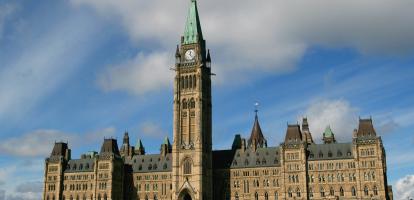Ontario’s physicians are vital caregivers in the province, and they are not happy.
Ontario’s physicians are vital caregivers in the province. Their salaries represent the second largest line item in health spending. And they are not happy. Negotiations between doctors, represented by the Ontario Medical Association (OMA), and the Ontario government, have been on ice for almost two years. During the past several years, they have been without a contract, and the Ontario government has unilaterally reduced their fees.
They might resume negotiations soon following a letter by the Health Minister that the government will consider the OMA’s demand for binding arbitration. However, agreeing to this demand will likely be costly to taxpayers and won’t solve overarching issues, such as how to make more efficient use of physicians’ time, skills and expertise.
Binding arbitration is a common method for arriving at settlements between governments and labour unions in the public sector. It is often used in negotiations between municipal governments and unions that represent those who provide what are classified as “essential services” and therefore don’t have the legal right to strike. (Agreements with police and firefighters are often settled through binding arbitration, for example). Although laws defining right to strike are changing fast, under current legislation Ontario doctors lack a legal right to strike.
Settlements through binding arbitration tend to be more costly for employers than freely bargained contracts, despite the fact that arbitrators are supposed to take employers’ ability to pay into account. In the private sector, with pressures from competitors and the possibility of bankruptcy, ability to pay is a concept that arbitrators might be able to frame in concrete terms. However, when the employer is a government, the money it pays comes from taxes, and while politicians may not like to collect more tax revenue, the view of arbitrators, not unreasonably, is that they can raise taxes if they have to. In addition, given that previous public employer binding arbitration agreements have been generous, these settlements become the arbitrated template for others, which lead to an ongoing upward cycle of compensation.
Binding arbitration is also addictive: once negotiators use it once, they are more likely to use it again. This suggests that one side is usually content with an arbitrated outcome, removing the incentive to seriously engage in the next round of negotiations.
What’s the alternative? One approach for governments unable to negotiate terms with monopoly provider groups is to create an opportunity for alternative providers to compete for contracts. For instance, municipal governments have entered into alternative agreements for garbage collection, transit services and other publicly-provided services, when contract impasses with regular providers persist. With doctors, however, capable substitutes are in short supply, to put it mildly. That said, some physicians services can be delivered well by nurse practitioners, who are growing in numbers but remain underutilized. However, the opportunities for governments to apply competitive pressure on medical associations are very limited.
Somewhat ironically, the inability of governments and doctors to apply pressure on each other for a speedy resolution is a consequence of our unique single-payer model of health care financing. We have created major legal and regulatory barriers for private medicine to compete with the public system, so the public is entirely dependent on the services that doctors are willing to supply under the government plans. Because of this, what remains as options for governments and doctors to speed up talks is, effectively, bargaining in the press and media for greater public support.
The rising cost of health care and the mediocre performance of Canada’s health care system in comparison with peer countries continue to be problems that provincial politicians urgently need to address. Policy initiatives require negotiations with the medical profession about more than just fees. Negotiations should also cover measuring care quality, reforming methods of physician compensation, and the utilization of non-physician professionals (such as nurse practitioners) who could perform some functions traditionally reserved for doctors. Major changes of this kind are more likely to arise from direct negotiations rather than through arbitrators.
Doctors are dedicated professionals who remain highly respected by the public, and their resentment with having compensation terms imposed is understandable. Despite some periods of conflict with governments over compensation, over time, the current bargaining system has helped medical associations be highly successful in negotiating agreements. Binding arbitration would go too far in strengthening doctors’ bargaining power, resulting not only in higher costs to taxpayers but also lowering the likelihood that needed reforms take place.
Åke Blomqvist is an adjunct research professor at Carleton University in Ottawa and Colin Busby is Associate Director of Research at the C.D. Howe Institute in Toronto.
Published in Healthy Debate





